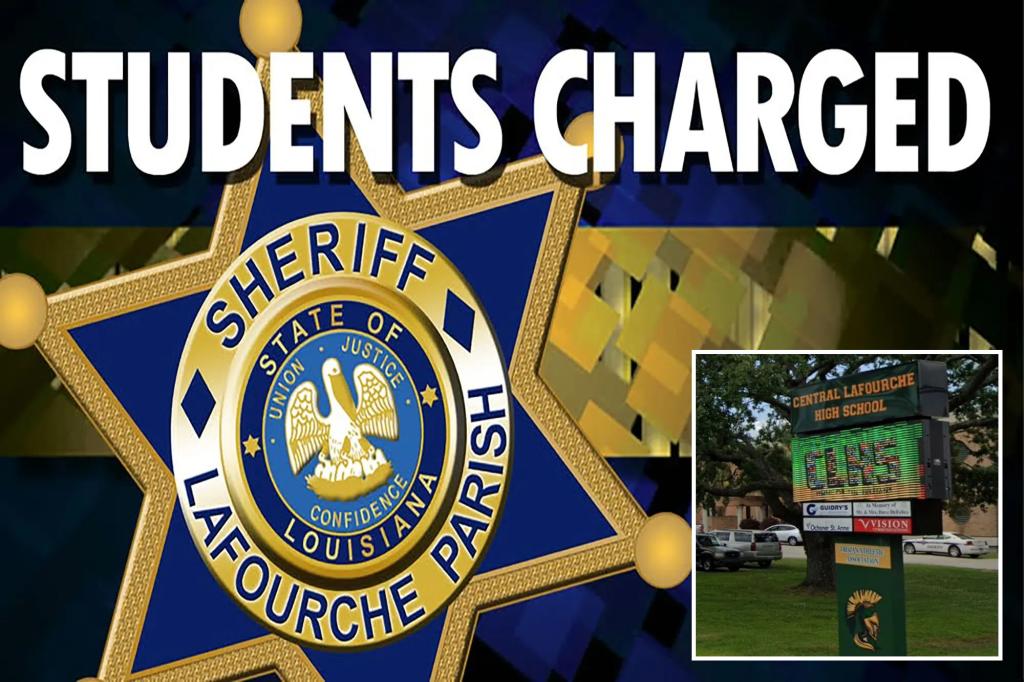This incident in Lafourche Parish, Louisiana, underscores the devastating potential of false accusations in the digital age, particularly when amplified by social media. Two high school students, aged 15 and 16, were charged with multiple offenses, including cyberstalking, online impersonation, and false swearing, after they fabricated explicit messages purportedly sent to them by a teacher. Their scheme involved creating a fake online profile for the teacher and manufacturing conversations that portrayed him as a sexual predator. They then shared screenshots of these fabricated exchanges with their peers, effectively spreading the false narrative and damaging the teacher’s reputation within the school community. The swift and thorough investigation by the Lafourche Parish Sheriff’s Office, involving search warrants for the students’ electronic devices, exposed the deception and cleared the teacher’s name. This case serves as a stark reminder of the need for due process and the importance of verifying information before drawing conclusions, especially in matters involving serious allegations.
The initial accusation by the students triggered a serious investigation by the Lafourche Parish Sheriff’s Office, which began on December 18th. The students claimed to have received inappropriate messages from a male teacher at Central Lafourche High School, prompting authorities to take swift action. However, the two-week investigation, which included the examination of the students’ electronic devices, revealed a starkly different reality. The messages were not sent by the teacher but were fabricated by the students themselves. This revelation shifted the focus of the investigation from the accused teacher to the accusing students, highlighting the potential for malicious intent and the misuse of technology to spread misinformation. The incident underscores the importance of thorough investigations and the presumption of innocence until proven guilty.
The students’ elaborate scheme involved creating a fake online profile for the targeted teacher. They then used this profile to generate fabricated conversations that painted a picture of inappropriate interactions between the teacher and the students. The inclusion of sexually explicit content in these fabricated messages aimed to further incriminate the teacher and bolster the credibility of their claims. By sharing screenshots of these fake conversations with their peers, the students effectively launched a smear campaign against the teacher, spreading misinformation and damaging his reputation within the school and wider community. Their actions demonstrate the ease with which false narratives can be created and disseminated online, highlighting the potential for significant harm to individuals and the need for critical evaluation of online information.
The Lafourche Parish Sheriff’s Office, upon uncovering the truth, acted decisively. The students were charged with multiple offenses related to their deceptive actions. These charges include false swearing for the purpose of violating public health or safety, cyberstalking for their harassment of the teacher through electronic means, and online impersonation for creating and using the fake online profile. These charges reflect the seriousness of their actions and the potential legal ramifications of using technology to spread misinformation and harm others. The case serves as a deterrent against similar behavior and underscores the legal consequences of such actions.
The superintendent of the Lafourche Parish School District, Jarod Martin, expressed his shock and dismay upon learning of the students’ actions and the false allegations against the teacher. He condemned the students’ attempt to tarnish the teacher’s reputation and affirmed the school district’s commitment to investigating all allegations of misconduct to ensure a safe and productive learning environment. This incident underscores the importance of due process and the potential for irreparable damage to individuals’ careers and lives due to false accusations. The superintendent’s statement affirms the district’s dedication to maintaining a fair and just system for both students and staff.
This case highlights the double-edged sword of technology. While it facilitated the students’ deceitful scheme, it also provided the tools for investigators to uncover the truth. The digital footprints left by the students on their electronic devices ultimately exposed their fabrication. This case serves as a cautionary tale about the potential for misuse of technology and the lasting consequences of online defamation. It also emphasizes the importance of digital literacy and critical thinking skills in navigating the online world and distinguishing between credible information and misinformation. The incident reinforces the need for vigilance and responsible online behavior, particularly among young people.

